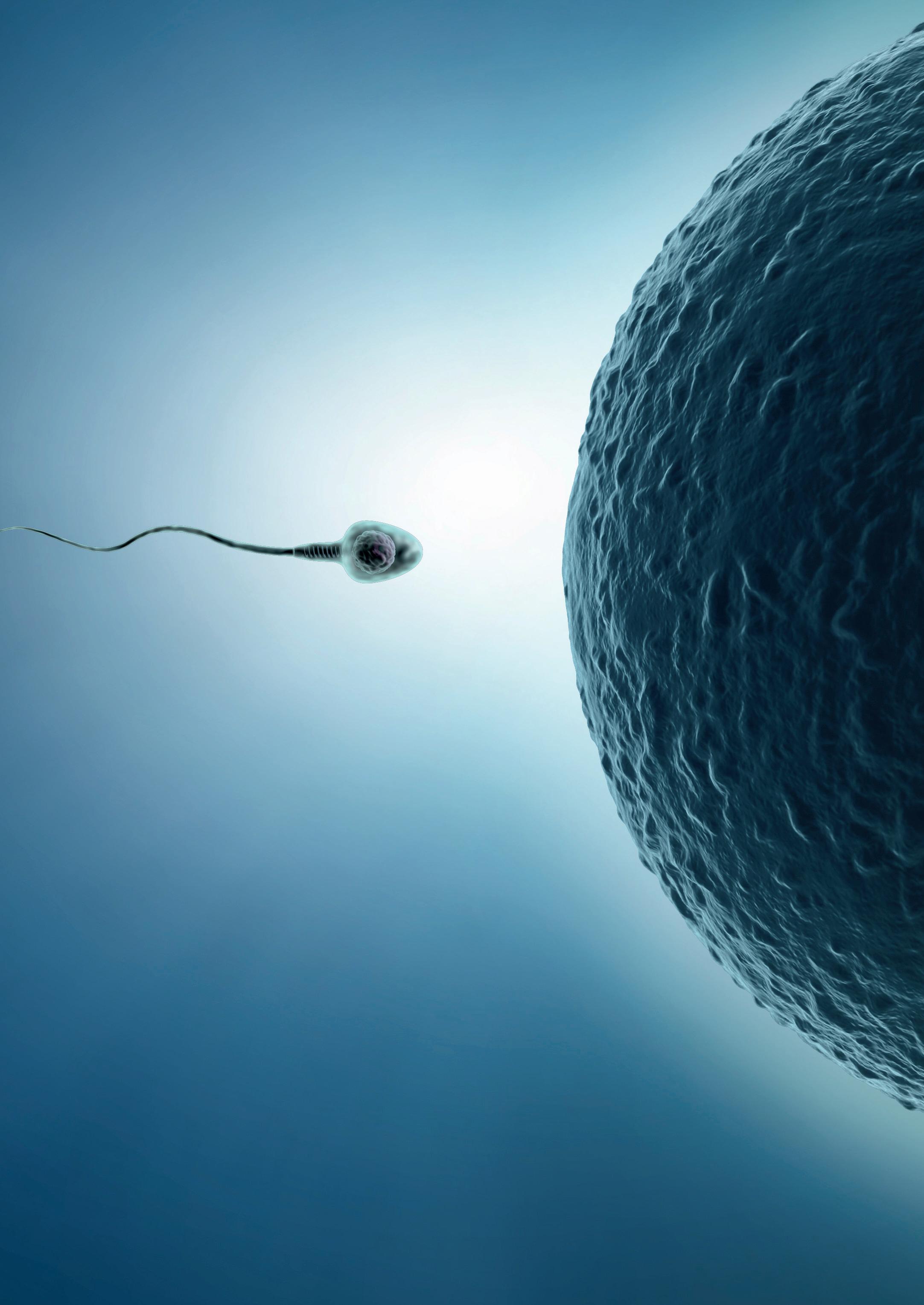
2 minute read
RISING FERTILITY ISSUES IN YOUNGER MEN
The fastest way for nature to reduce the impact of humans on the planet is to limit conception and, therefore, the human race. Sadly, humans seem to have got there first with a significant reduction in male fertility likely caused by obesity and endocrine disrupting chemical. Two surgeons explain the problem...
The leading minds have recently published an extensive survey*, ‘The Fertility Index’, to show how men and women across the UK understand and manage fertility and sexual health issues. The index has highlighted that fertility issues have risen hugely over the last two generations with 16% of those under 34 being impacted by fertility issues when they have tried to conceive compared to just 6% of those who are now over 55 (when they had tried to conceive in previous decades).
These figures show a concerning trend in a rise in fertility issues across the UK which mirrors recent reports showing a surge in infertility in men across the western world. According to a global study, sperm counts are not only dropping but the rate of this decline is increasing with data showing a drop of 1.2% per year from 1973 – 2000 but from 2000 to 2018, the decline was 2.6% per year. These may seem like small figures, but the increasing drop means millions of men will likely experience fertility issues at a drastically increased rate.
By Dr Tet Yap and Professor Suks Minhas


Already in the UK, one in 50 babies in the UK is born via IVF, one in 60 in the US, and in Denmark, Israel and Japan the figure is more than one in 25 – and rising. Experts believe the increase in fertility issues is based on a number of factors including an increase in obesity in the western world and our increasingly sedentary lifestyle which has been impacted further as millions work from home since the pandemic. Increased exposure to endocrine disrupting chemicals, such as those found in plastics, is another major culprit.
Suspected fertility issues are best addressed early on. Statistics show that women are more likely to believe that the issues lie with her and she is more likely to seek help than her male partner. It doesn’t help that fertility has always been almost solely focused on women. IVF, egg freezing, and the female biological clock dominate the agenda.
Unfortunately, men’s fertility and sexual health issues are still taboo subjects for far too many. Yet, of all infertility cases, approximately 40-50% are due to ‘male factor’ infertility. The Fertility Index was designed to encourage couples to openly discuss their fertility and sexual health issues and understand what can impact their sexual performances.
The index also highlighted that more than one in four (26%) of those under 35 are considering freezing sperm or eggs while young to help with conceiving later in life as millions delay having children young.
The average age to have a child in the UK is now 31 but many couples are waiting until their late 30s or even early 40s to try for children. Freezing healthy sperm or eggs when young can extend the period that couples can conceive and also help with fertility issues which are more likely to increase with age.

Leading Surgeons Tet Yap and his internationally renowned partner Professor Suks Minhas are co-founders of Men’s Health Clinic, London Andrology, which supports men with conditions associated with male fertility and sexual function. They are leading minds in their field and have worked together for over 15 years, developing the most advanced treatments for sexual and reproductive needs.
London Andrology, 18 Devonshire Street, London W1G 7ASF
Tel: 0207 034 5032
Mail: info@londonandrology.com
*Research was carried out online by Research Without Barriers – RWB between September 16th 2022 and September 22nd 2022. The sample comprised 1,003 UK adults
Salty seas, sun on your face and wind in your hair –yachting, boating, sailing, whatever you choose to call it, is a fantastic holiday for those seeking adventure, relaxation and exploration on the open waters.


By Tess de Klerk










